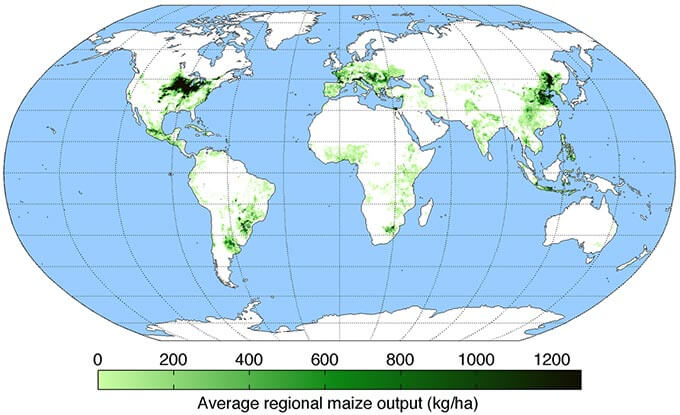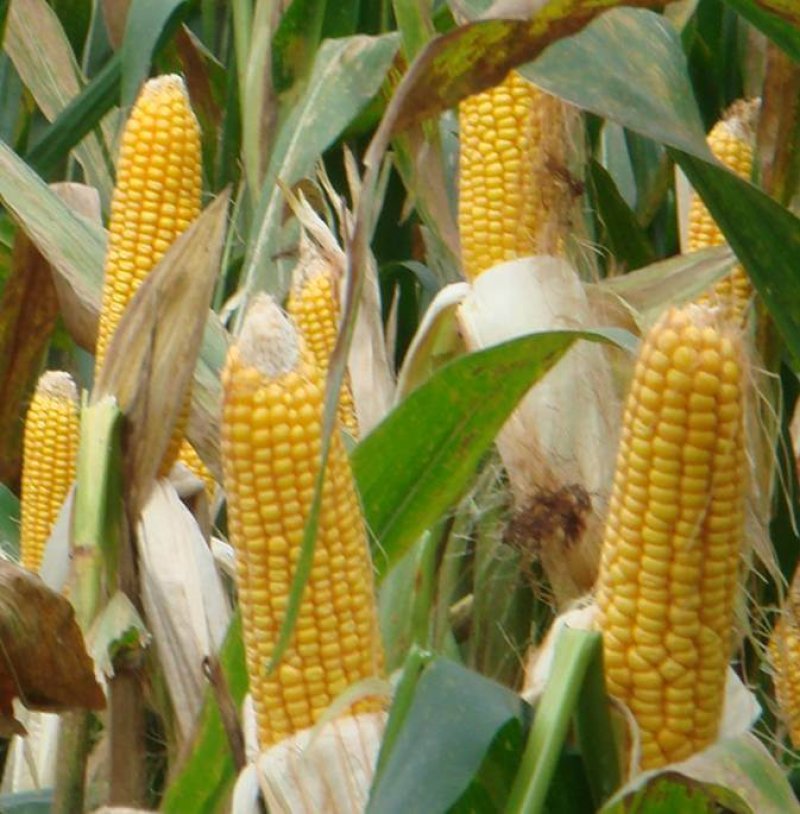A new, much more detailed reference genome for maize, or corn, as it is called in the U.S., [was] published in Nature [June 12]. In its accounting of the sequence of DNA letters in the plant’s 10 chromosomes, the new version helps us understand as never before why maize, and not some other plant, is today the most productive and widely grown crop in the world.
Among many other things, the new sequence reveals that maize individuals are much, much less alike at the level of the genome than people are.
“Our new genome for maize shows how incredibly flexible this plant is, a characteristic that directly follows from the way its genome is organized,” says Doreen Ware, Ph.D., of Cold Spring Harbor Laboratory (CSHL) and the U.S. Department of Agriculture, who led scientists at seven academic institutions and several genome technology companies in the project.
This flexibility not only helps explain why maize has been so successful since its adaptation by agriculturalists thousands of years ago, but also bodes well for its ability to grow in new places as the earth’s climate changes, and for increasing the plant’s productivity and environmental sustainability in the U.S. and abroad.
[Read the full study here]

The GLP aggregated and excerpted this blog/article to reflect the diversity of news, opinion, and analysis. Read full, original post: Detailed new ‘reference’ genome for maize shows the plant has deep resources for continued adaptation































